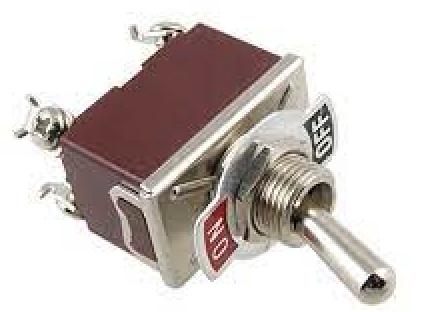After watching what happened in Ft. Myers Beach, Florida, I was reminded that living on the Eastern Shore can put us on target for a hurricane. So we decided to install a generator at our home in Easton. It was not hard to arrange. When the crew came to install the equipment, one of the steps in the process was to simulate an outage. As they shut down the power to the house, the transfer switch offered a loud “snap” and automatically turned on the generator, restoring electricity. The house moved on with its business of washing, heating, and powering my laptop.
In a successful mediation, there is what I call a “magic moment” when the thinking of at least one of the parties changes. They stop thinking about the past and start focusing on the future. They stop being angry and consider the other side’s point of view. Like when the transfer switch is thrown by the lack of power reenergizing the house, throwing the switch in your thinking can energize the parties to move forward to find an acceptable settlement. What I have also noticed is that once one party starts looking at the conflict differently, the other party will often follow. They will also start thinking differently about the conflict. This is what mediators try to encourage, a conversation about resolving conflict, not about getting even or punishing the other party.
Here is an example. Not long ago, I was asked to mediate a landlord-tenant dispute. The lease had expired, and the landlord wanted the use the property for another purpose, not as a rental. However, the tenant would not leave the property and continued to pay rent. Even though they both had a good relationship over the years, the landlord was focused on having the tenant leave the property. The tenant wanted to stay. There are legal remedies for this situation, but they decided to try mediation.
In mediation, both parties presented their positions to each other. Remember, a mediator is not a judge and is neutral in the dispute. After some discussion, it became clear that the tenant was “holding over” for one simple reason. They had no place to go. Almost instantly, the landlord thought differently about the challenge. The solution was not to force the tenant to leave but to ensure they had a safe and reasonable place to relocate. Once that “switch” was thrown, the landlord’s thinking changed from confrontation to working together to find another place for the tenant to live. It turned out the landlord knew of another property that would soon become available. The conflict was resolved.
How you think about things in mediation is key to a successful settlement. Moving from confrontation to problem-solving is a critical step. Once you “throw that switch” in your thinking, the likelihood of a positive outcome increases dramatically.
Steve Forrer, the former dean, and vice-chancellor of the University of Maryland Global Campus, is currently a mediator for the Maryland District and Circuit Courts. Questions can be submitted at www.doncastermediation.com/contact for Steve to answer in this column. He also accepts private mediation.



Write a Letter to the Editor on this Article
We encourage readers to offer their point of view on this article by submitting the following form. Editing is sometimes necessary and is done at the discretion of the editorial staff.